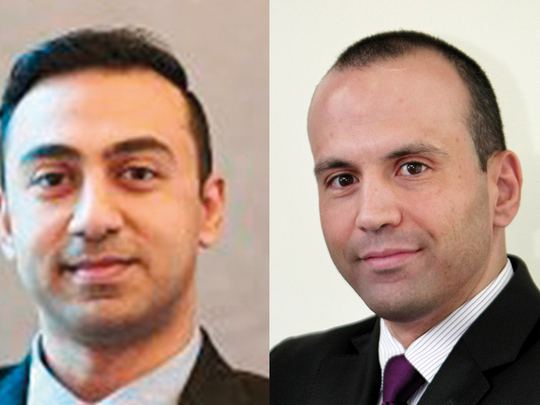
Dubai:
Traders were betting on more weakness in Qatari riyal as uncertainty surrounded over growing rift between Qatar and Gulf states like Saudi Arabia and the United Arab Emirates.
Spot Qatari riyals against the dollar was at 3.6517, the highest since July 2005. Qatari riyals 12-month forward contract was at a record of 3.6500 against the dollar, indicating more weakness in the currency.
“This weakness is driven by the current political uncertainty which has the potential to increase Qatari Rial funding cost,” Chandru Bhatia, portfolio manager at Rasmala told Gulf News.
“As it is difficult at this stage to predict the duration of this political uncertainty, we remain cautious on outlook,” Bhatia said.
The riyal’s drop “is based on speculation”, an official from the Qatari central bank was quoted as saying by a report, adding Doha had a “huge cushion” of foreign currency to support the riyal if necessary. Qatar had a foreign exchange reserve of $36 billion.
Premature:
Analysts feel its too premature to talk about the de-pegging of currency.
Jameel Ahmad, vice president of corporate development & market research said “any potential impact on the peg would also be correlated to how this uncertainty goes on for.”
Reports also suggested that it has been advised for banks to not trade with Qatari banks in Qatari Riyals.
“This has not been confirmed and remains unknown, but any lower circulation or even demand for the Qatari Riyal helps provide some explanation towards weakness in contracts,” Ahmad added.
Stocks
Volatility in Qatari stocks cooled off, after the index shed nearly 10 per cent in the previous two sessions. The Qatar stock exchange index closed 1 per cent lower below the keenly watched level of 9,000. The index closed at 8,965.01.
The cost of insuring risk of a sovereign debt default, in Qatar or the 5-year credit Default Swaps rose to 77.14 points, up 5 per cent on day. This compares with 70 points of CDS two days ago. Qatari CDS hit a peak of 137 in February 2016.
“The longer the crisis stays, the more impact it will have on stocks as well as fixed income,” said Nadi Bargouti, managing director head of asset management at Emirates Investment Bank.
In Saudi Arabia, the 5-year CDS fell to 91 points from 92.8 points on Monday. The 5-year Abu Dhabi CDS was flat at 40 points.
Qatari credits
Standard Chartered expects Qatari credits could widen 50 basis points in a stalemate scenario.
“We expect Qatari credits to be worst hit, followed by Saudi Arabia, and — to a lesser degree — Abu Dhabi and Kuwait,” Standard Chartered said in a report.
“The extent of the spread move is hard to predict given the uncertain course of events from here. In a stalemate scenario, we expect Qatari credits to widen 50 basis points,” the report added.
A widening in credit spreads represents good buying opportunity.
“In a yield-starved world, we believe a repricing of the region — which had otherwise reached historical tights versus many EM peers — could offer attractive opportunities to scale into the stronger credits,” the report said.











